On the afternoon of July 1, the Postdoctoral Forum of the Department of Electrical Engineering and Applied Electronics (EEA) at Tsinghua University was held in Room 3-217 of the West Main Building. The theme of the forum was "AI for Science: Exploring and Applying Artificial Intelligence to Empower Teaching and Research." The aim was to explore how artificial intelligence (AI) technology can empower academic research and talent development. Key attendees included Cui Jian, Deputy Director of Tsinghua University’s Human Resources Office; Kang Chongqing, Dean of EEA; Zheng Zedong, Party Secretary of the Department; and other faculty members. The event attracted over 80 postdoctoral researchers, young faculty members, and doctoral students from EEA. The forum was hosted by Wu Wenchuan, Deputy Party Secretary of the Department.
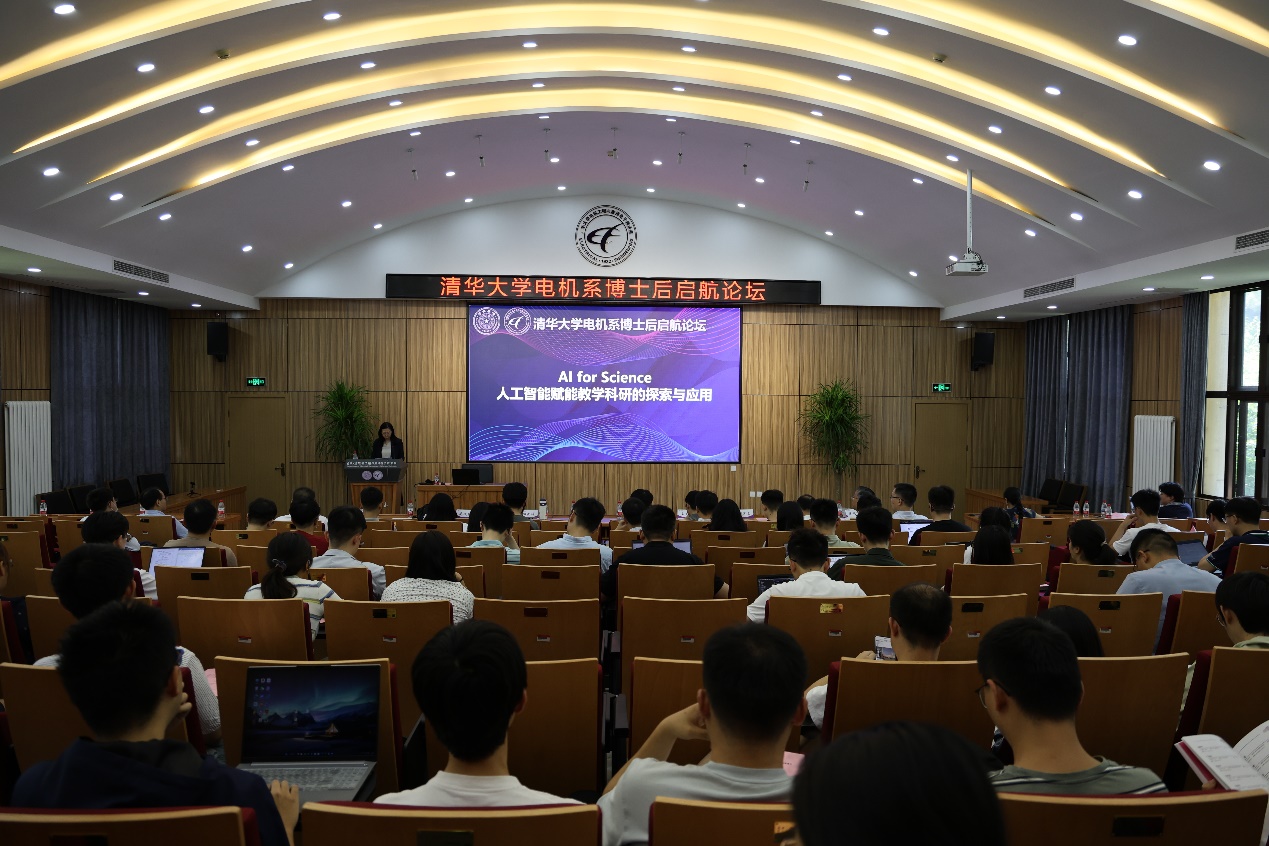
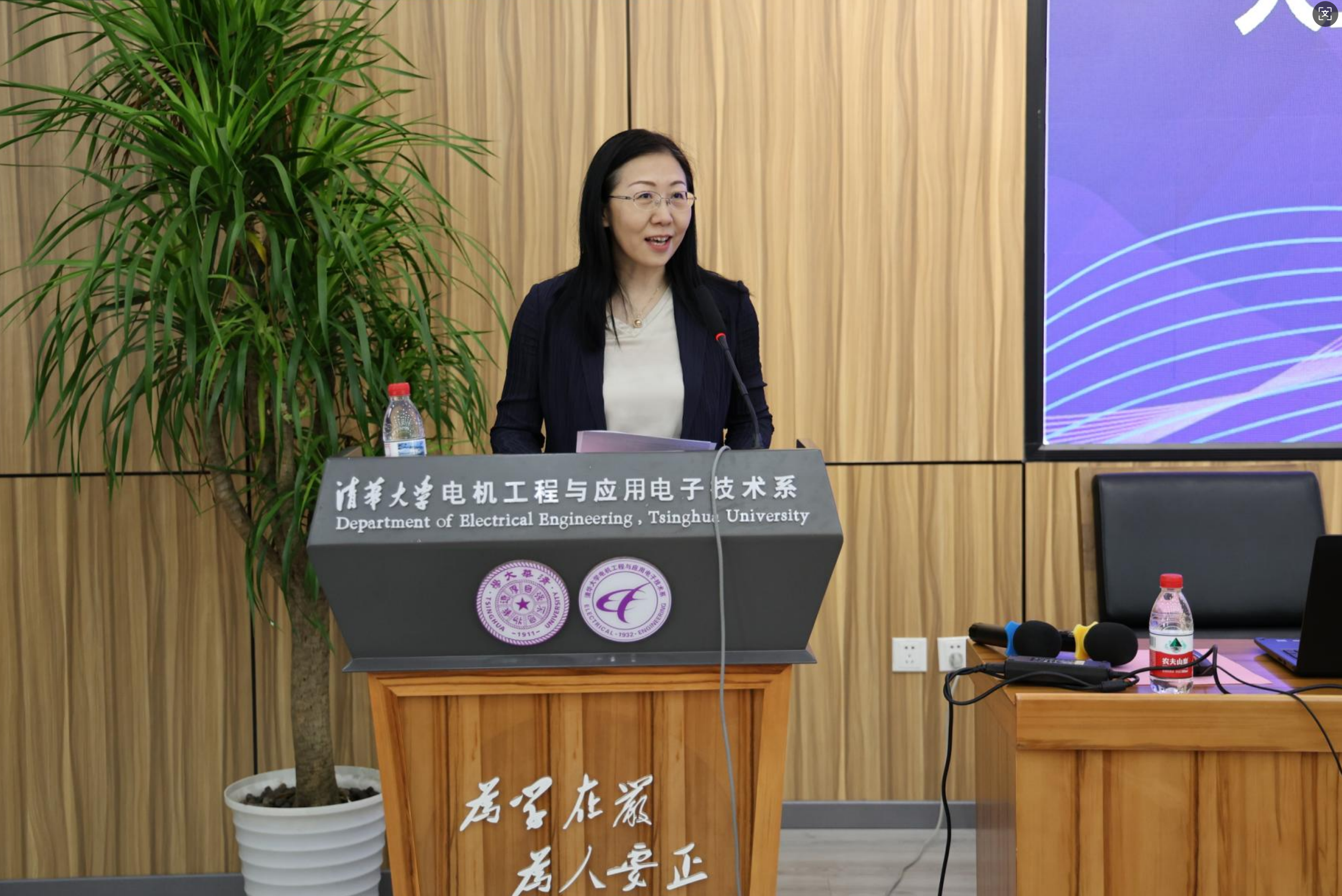
Deputy Director of the Human Resources Department, Cui Jian, delivered a speech
Cui Jian delivered the opening remarks, first affirming the achievements of the Department’s electrical engineering postdoctoral research station over the years. He emphasized that "AI for Science" is reshaping the research pathways of various disciplines with disruptive power. The university has made significant strides in constructing an AI-empowered talent ecosystem and has achieved landmark results. EEA has taken the lead in formulating an innovative action plan for AI-enabled discipline development. This postdoctoral forum serves as an important measure for implementing that plan, aiming to create an innovative platform for young scholars. Cui expressed hope that young scholars would harness AI as a tool, take on the responsibilities of the times, and become leaders in advancing technological self-reliance.
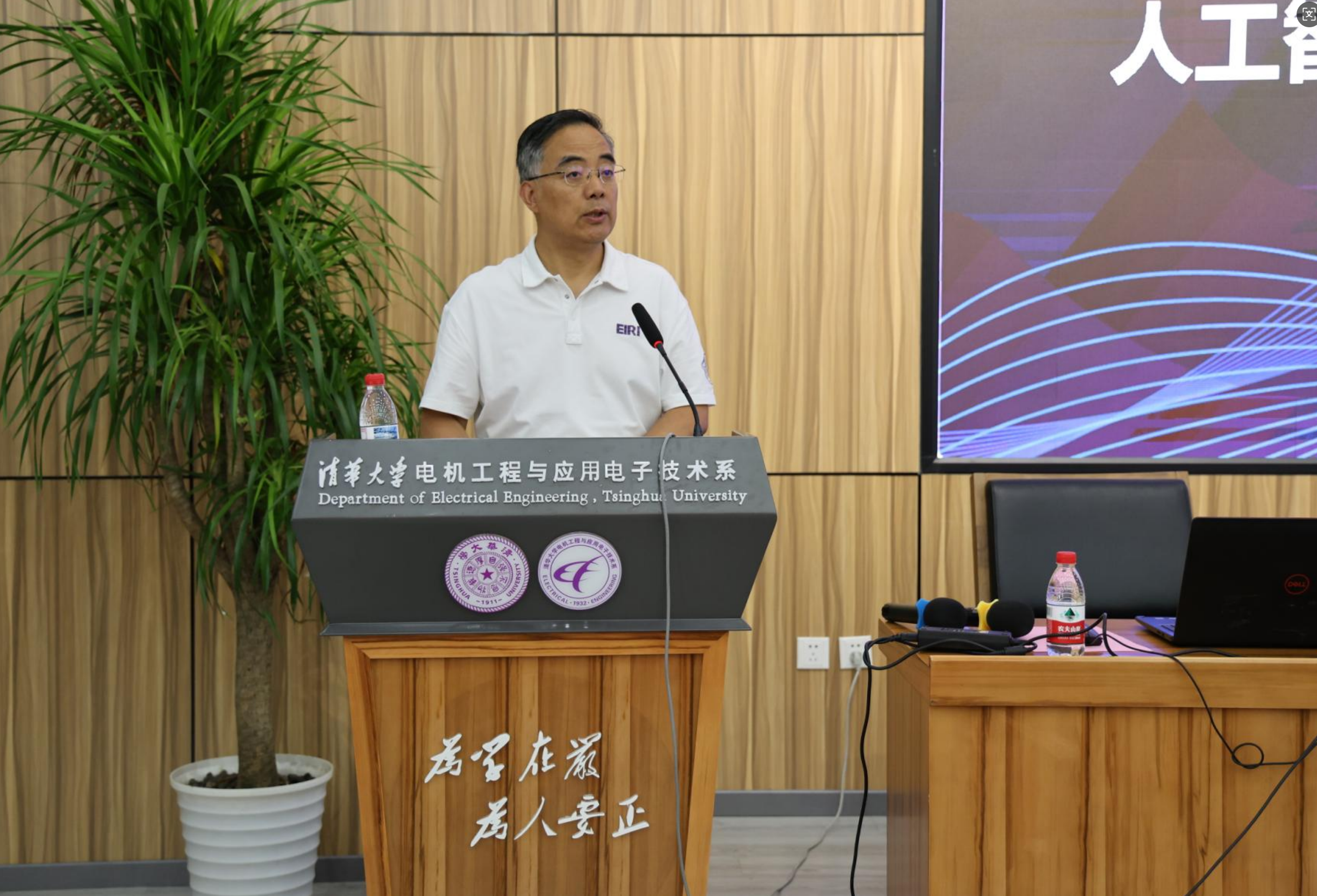
Kang Chongqing gave a speech
Kang Chongqing introduced the overall plan for AI-enabled teaching and research in the Department of Electrical Engineering. He pointed out that the postdoctoral team has become an indispensable force in the department’s scientific research and innovation, making significant contributions to grant applications and national energy transformation practices. The department will provide comprehensive support for the long-term development of postdoctoral researchers and has clearly defined a development plan for the "AI-enabled Electrical Engineering" (AI for EE) discipline. Through a series of forums and other activities, the department aims to promote greater breakthroughs in research and teaching.
During the guest report session, three experts from different fields shared their insights.
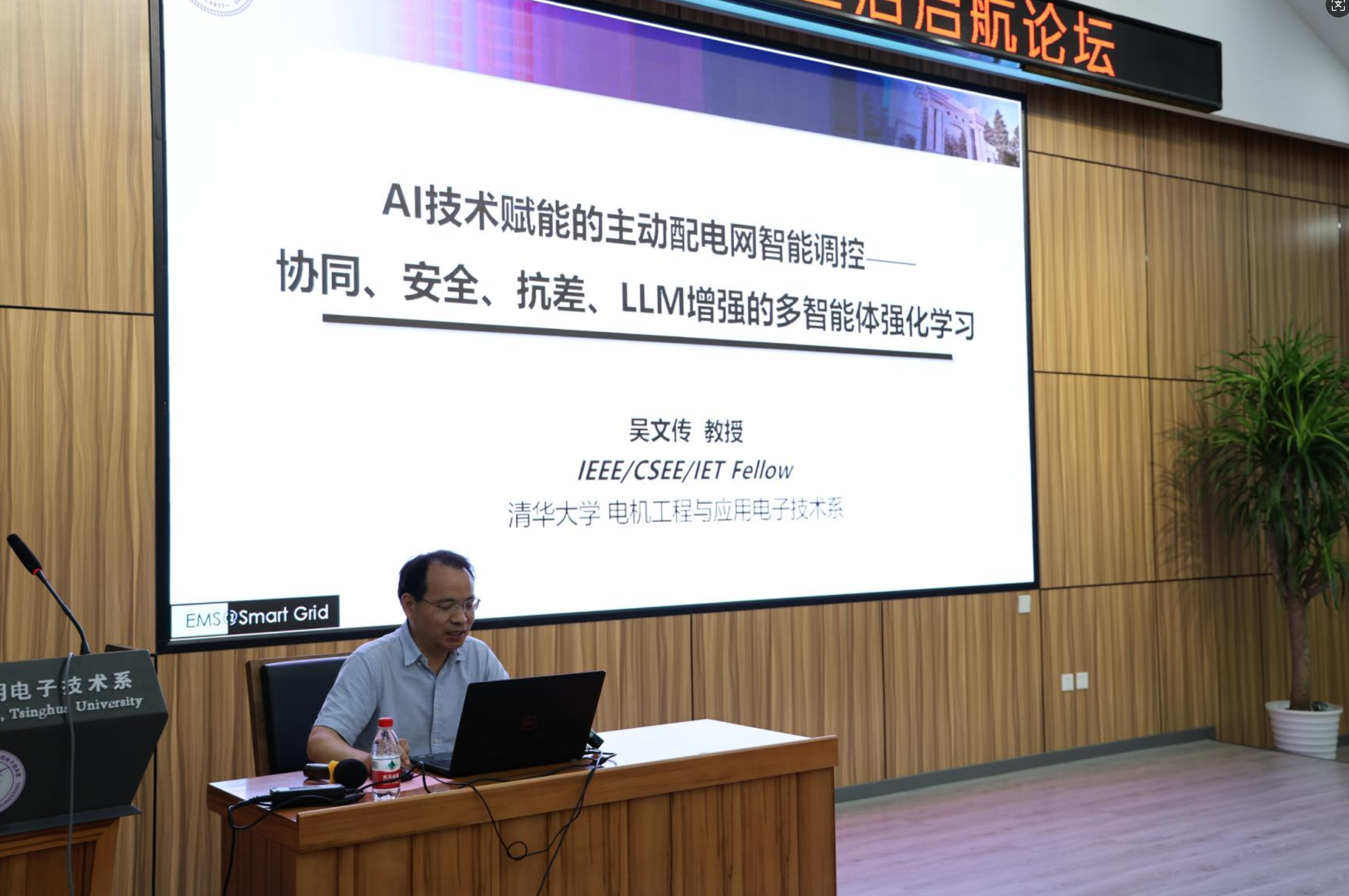
Wu Wenchuan, Deputy Secretary of the EEA Party Committee, delivered a report
Wu Wenchuan gave a presentation on "AI Technology-Enabled Active Distribution Network Intelligent Regulation." He addressed the challenges posed by the large scale, rapid changes, and modeling difficulties in power distribution networks with the integration of renewable energy sources. He introduced a multi-agent reinforcement learning control framework that incorporates collaborative learning, safety constraints, robust training, and large language model enhancement, showcasing the potential application of AI technology in solving complex industrial control problems.
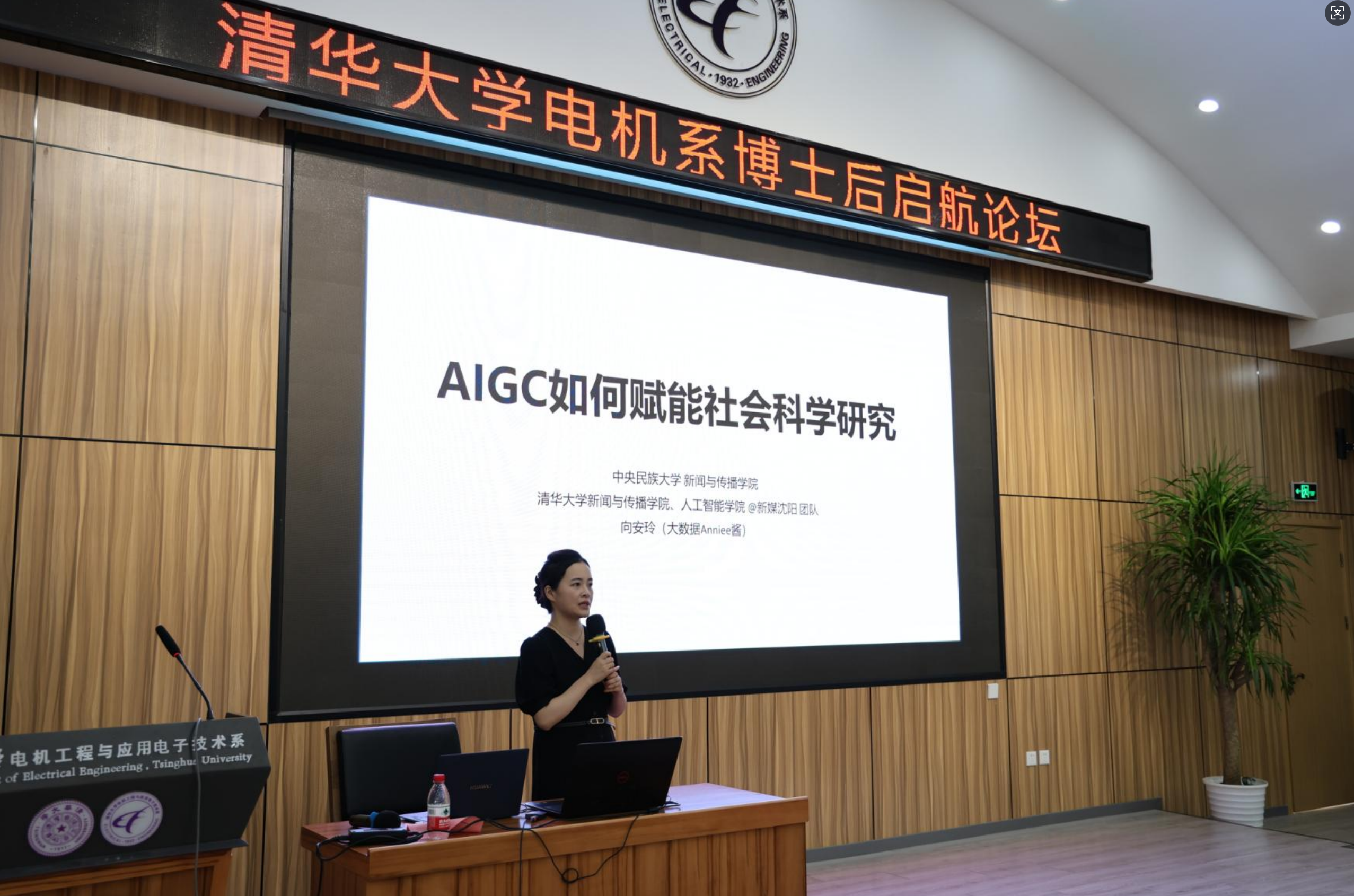
Xiang Anling from the School of Journalism and Communication at Minzu University of China delivered a report
Xiang Anling shared a perspective from the humanities and social sciences in her presentation on "AIGC Empowering Social Science Research." She demonstrated how her team has developed a series of AI-powered tools such as literature reviews, research reports, video generation, and digital human tools. She discussed how AI is reshaping research paradigms in social sciences and emphasized that while AI is a powerful tool, it is human expertise, critical thinking, and labor consciousness that are key to determining the quality of the final output.
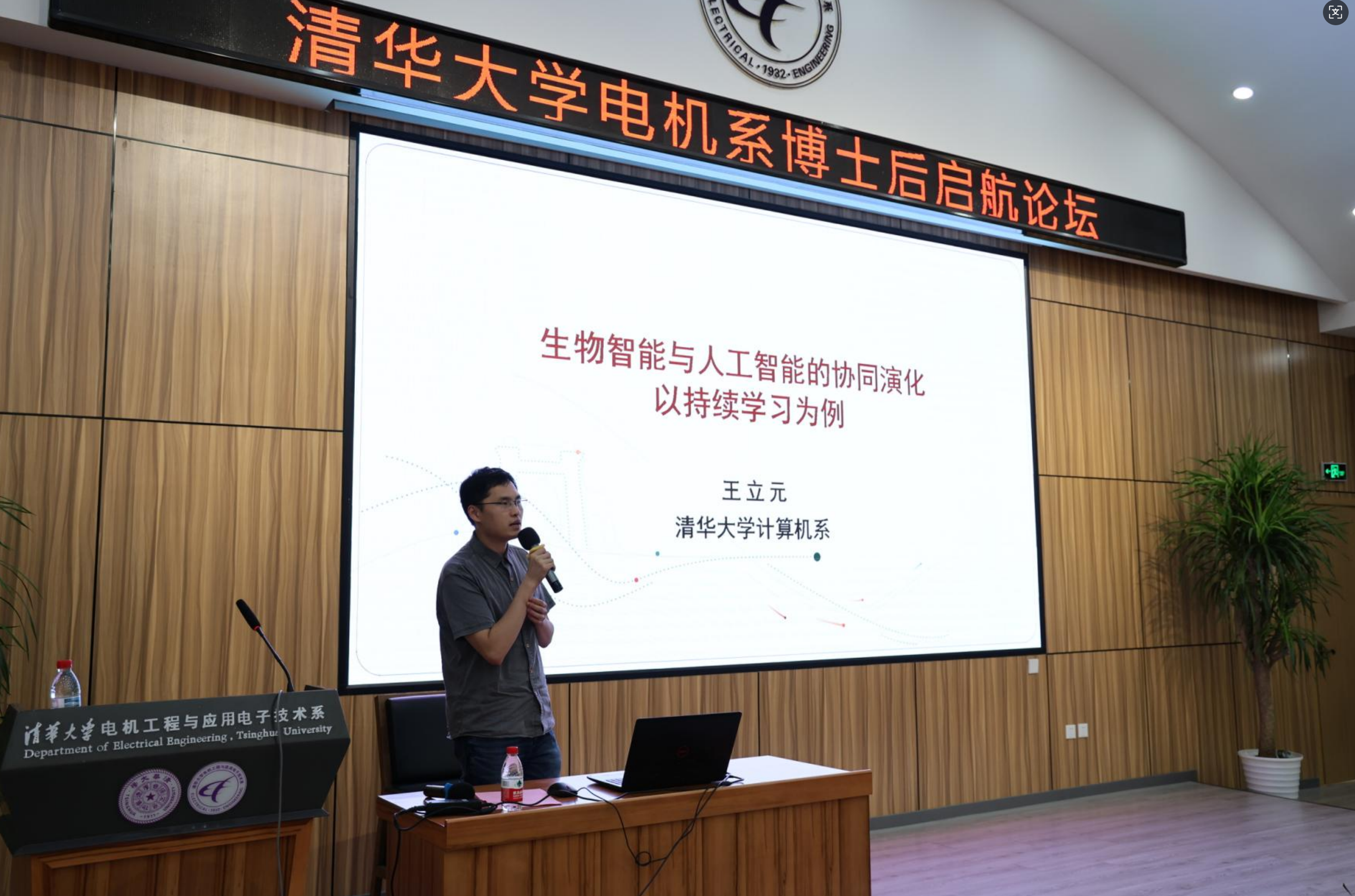
Wang Liyuan, Postdoctoral Fellow from the Department of Computer Science at Tsinghua University, delivered a report
Wang Liyuan presented on "Co-evolution of AI Technology and Biological Intelligence." He explored the two dimensions of "biologically inspired AI" and "AI-enhanced biology," explaining how the memory and forgetting mechanisms of biological brains can be used to improve the continuous learning capabilities of AI models. He also discussed how advanced multimodal generation technologies can be applied to restore and transform human physiological signals to support human health.
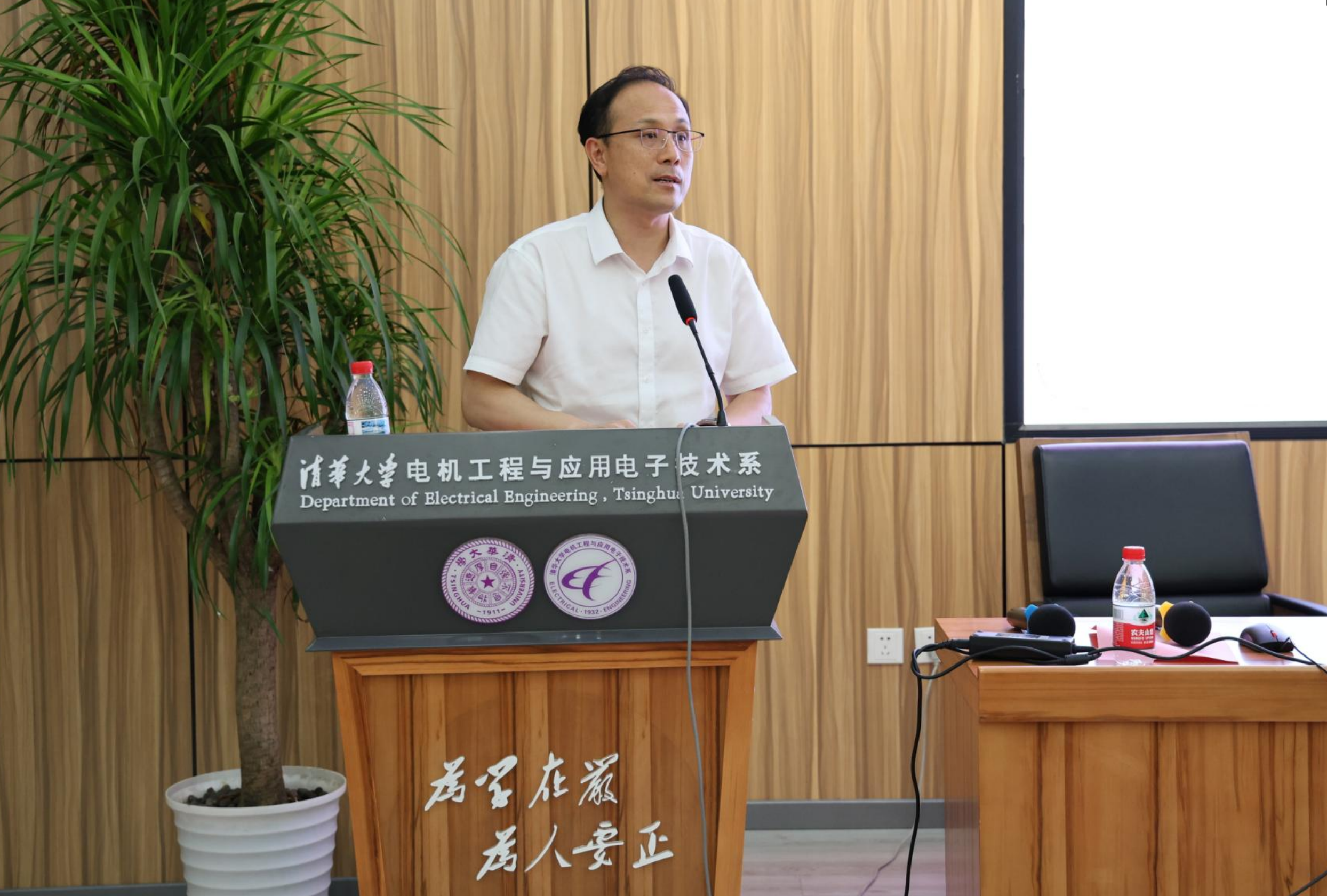
Zheng Zedong gave the closing remarks
After the guest reports, Zheng Zedong summarized the outcomes of the forum. He encouraged postdoctoral researchers and young scholars to become pioneers of original innovation using AI and to contribute their wisdom and strength to the development of EEA and the nation's progress in the "AI for Science" field.

















 News & Events
News & Events